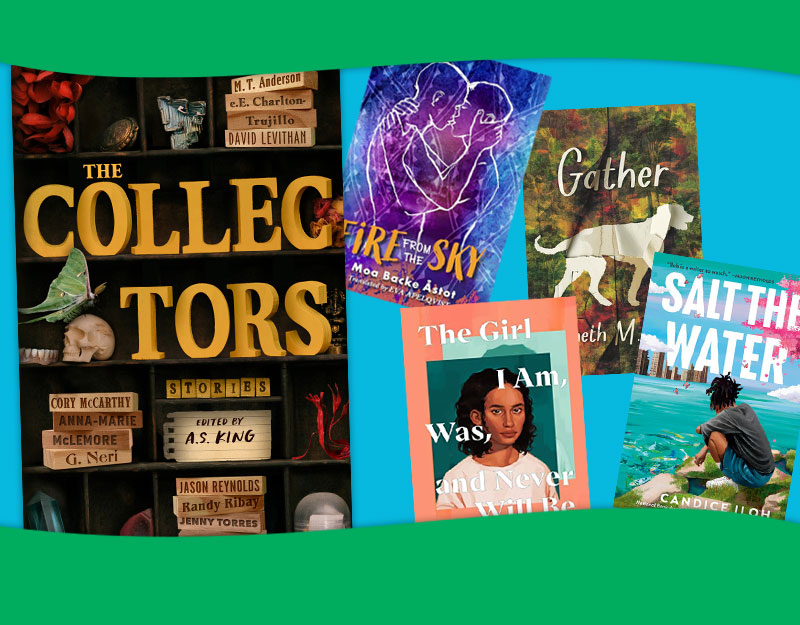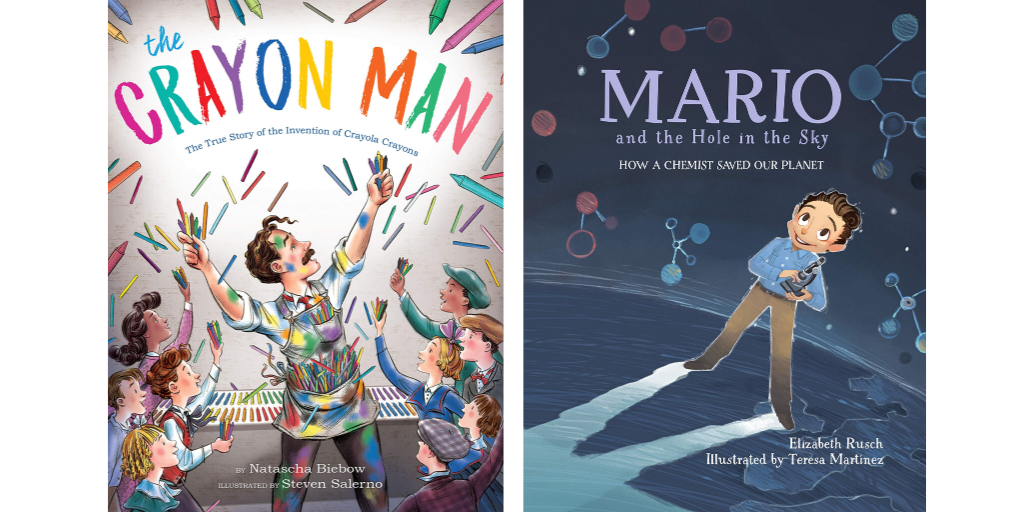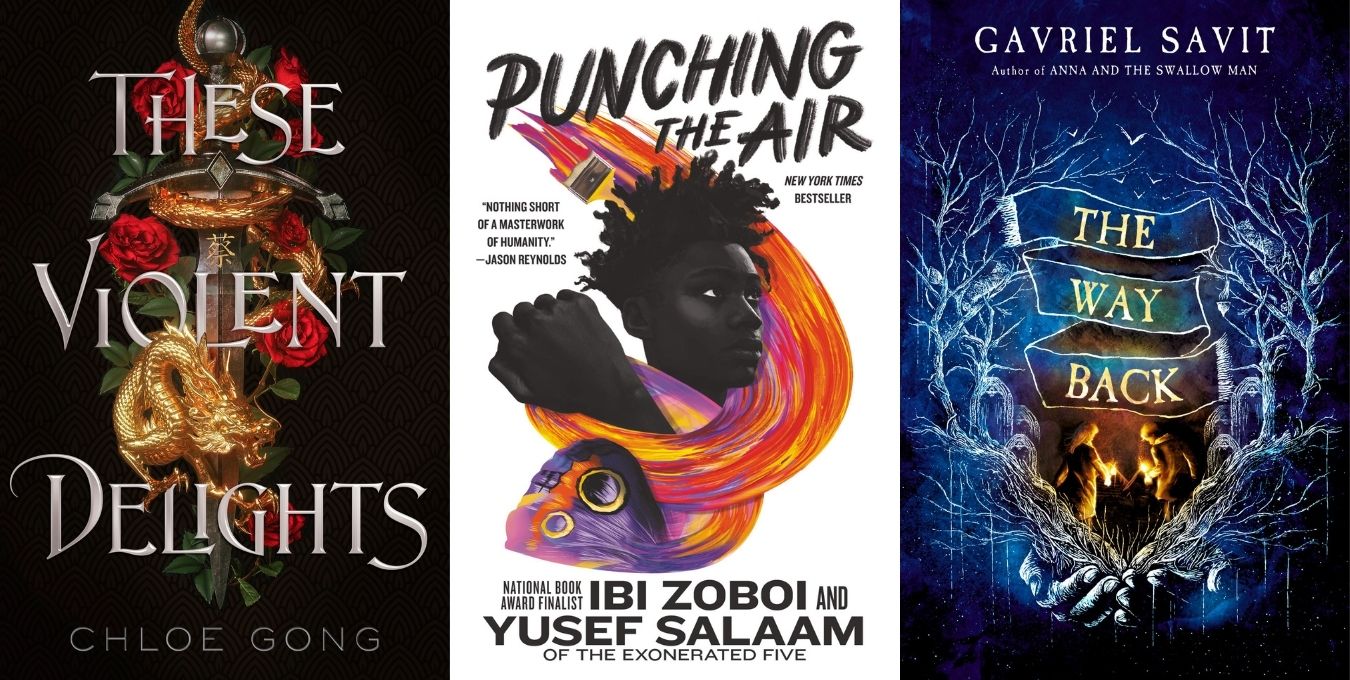The Toll! The Toll! The Toll!

One of the most popular series for my students (5-8 grade) in the past two years is the “Arc of a Scythe” trilogy: Scythe, Thunderhead, and The Toll. On Heavy Medal — Scythe was never discussed as a serious Newbery contender: perhaps Jonathan and Nina at the time felt that it fit Printz or BFYA (Best Fiction of for Young Adults) better. Which turned out to be the case: both Scythe and Thunderhead were TOP TEN teen fiction (as part of BFYA) and Scythe won a Printz Honor. I wrote about Thunderhead last November, naming it a favorite and an unlikely title to be considered by Newbery, Printz committees or by Heavy Medal readership: being a sequel and a science fiction to boot, with violent scenes that some adults might feel unsuitable for younger readers. I do not wish this fate befalling The Toll. The book is truly outstanding and distinguished — what a feat!
It is well within the age range for Newbery — so I won’t spend any bandwidth discussing or defending this point. I simply wish to present a few, of many, distinguished aspects.
ADVERTISEMENT
ADVERTISEMENT
- It deals with complex geo-political and environmental issues, featuring both young adult and adult characters and yet with the exciting plot development, the story speaks directly to younger readers and compells them to not only keep reading but also to consider our world and the crisis we face;
- Shusterman builds a fully realized world that feels expansive: mystery island in the far away sea, Scythe groups on different continents, and even the remote location of the preservation of the minds of those who have perished. At the same time, the tales of the sizable cast of characters feel intertwined and intimate. It highlights the sense of how small acts by individuals could have significant impact on a global scale;
- The Toll, gives readers multi-layered and multi-faceted characters who actually change how they behave and make different decisions as they are informed by the events within the narrative. We even got to see how Goddard progressed from an aspiring young man to the evil overlord;
- The authorial devices of scattering of future sacred text of The Toll’s life’s work, interpreted and analyzed by future scholars and the many past “dialogs” between iterations of The Thunderhead both playful and informative. Such devices, successfully deployed, further enrich the already outstanding narrative. (The “plot” is the present, the Iterations is the past, and the TOLL’s sacred text is the future. I MUST RE-READ it to glean even more hidden messages and themes.)
There are more strong points of The Toll which was published just two weeks ago and all 10 copies of them in my library are being devoured by passionate young readers (ages 12 to 14) — some have already finished and can’t stop talking about it. Others have told me how they started and in one sitting, having read more than 100 pages and cannot stop!
I nominated it for our Heavy Medal Award. And would dearly see it discussed here in January. I am sure that the discussion will come up of whether a book in a series needs to “stand alone” in order to be considered by a Committee of 15, some of them having never read the first two installments. We will save that discussion in the comments or when we talk about it in more detail later. Hint: my instinctual reaction is “stand-alone” be damned! If you love children’s books and serve on a children’s literature award committee, you would (or should) probably have read at least Scythe!
Just a reminder that both 1976 Medal Winner: The Grey King by Susan Cooper and the 1969 Medal Winner: The High King by Lloyd Alexander are the final volumes of two series. Both are speculative fiction (fantasy, not SciFi, granted.) Will decades later, the 2020 Newbery Committee repeat history and give The Toll a Newbery that it deserves?
Filed under: Book Discussion
About Roxanne Hsu Feldman
Roxanne Hsu Feldman is the Middle School (4th to 8th grade) Librarian at the Dalton School in New York City. She served on the 2002 and 2013 Newbery Committees. Roxanne was also a member of 2008-2009 Notable Books for Children, 2015 Best Fiction for Young Adults, and the 2017 Odyssey Award Committees. In 2016 Roxanne was one of the three judges for the Boston Globe-Horn Book Awards. You can reach her at at roxannefeldman@gmail.com.
ADVERTISEMENT
ADVERTISEMENT
SLJ Blog Network
Happy Poem in Your Pocket Day!
This Q&A is Going Exactly As Planned: A Talk with Tao Nyeu About Her Latest Book
More Geronimo Stilton Graphic Novels Coming from Papercutz | News
Parsing Religion in Public Schools
Environmental Mystery for Middle Grade Readers, a guest post by Rae Chalmers
ADVERTISEMENT








I am only part way through, an can’t wait to finish to discuss the literary points when I am done. Right now, I want to second that this series is clearly in the Newbery age range. I just surveyed the 6th grade classes of a local elementary that will be coming to the public library for booktalks to see what genres they are most interested in. I also asked for them to give some favorite books they have read recently, and so many wrote SCYTHE. I think that the themes that are being presented are tapping the interests of the tween readers in a very meaningful way.
Roxanne,
I think you were right to nominate THE TOLL. I just finished reading it. I read it quickly because it was so exciting. I need to reread to savor the hidden messages and themes. It’s going back to the top of my TBR pile. You’ve convinced me to make it one of my Dec. nominations.
And let’s remember that Criteria don’t specifically say: “stand alone.” It’s: ” The book must be a self-contained entity, not dependent on other media (i.e., sound or film equipment) for its enjoyment.” Using “The High King” as an example, a reader new to the series could easily read that book and understand and appreciate it. I haven’t read THE TOLL yet (100+ holds in my local county library!), but plan to try it without having read the 2nd in the series. Something I would never do in my normal reading life, but I’m curious to see if I can appreciate it as much as others do….
But Steven, the idea is that even if you don’t appreciate it as much as those who have been reading the whole series, it is only because the book is integral to the rest of the world building and should not be penalized because you as the reader did not choose or have the chance to read book two. It is like asking someone to judge a 200 page long book but tell them they should skip from page 60 to 130. How would that be fair or even work? I know “stand alone” is not part of the criteria but it has been an unwritten assumption by many and I’d like to see the 2020 Newbery committee break away from that. Ah, also, The Hero and the Crown, right?
Though I read constantly, I always feel like I’m slacking because there are books I still just have not read. One of my goals this past year was to catch up on old Newbery winners I’ve missed. One missing book in my list was The Grey King, and I decided I should read the entire series leading up to it. I’m still stuck in the middle of The Dark is Rising. So I haven’t gotten to The Grey King yet. Another of those I missed was The High King. I read The Book of Three back in middle school and never read the rest, but I didn’t want to get stuck in another series and never get there, so I decided to just skip ahead. It took me quite a while to get into the book, not knowing the large cast of characters, but then I could see how a committee could choose it.
With The Hero and the Crown, I read that one first, not knowing it was a prequel (my librarian pushed it on me in 8th grade; I was not enthusiastic but took it to make her happy and fell in love with what would become my favorite book still). While having knowledge of the Blue Sword might have increased my enjoyment, I didn’t feel the confusion of not understanding the world or characters that I did at the beginning of The High King.
I’m embarrassed to say I have also not yet read Scythe books. I’m debating internally whether I should start at the beginning to fully appreciate The Toll or go in blind to get a better sense of what it might be like to committee members who’ve also missed the others.
I am so grateful for this conversation because I have too often heard books getting dismissed as being non-eligible due to the fact that they are later in a series, and people making the “stand alone” argument, where that isn’t part of the criteria as you have pointed out. It is a hard case to make to a whole committee if several people are still laboring under that interpretation of criteria, and I feel stronger committees are one that have spent time discussing what the criteria means for them.
One of my tests as a reader to see if a book later in a series is worth further analyzing is if I am a third of the way through, and I feel like I am at a party where everybody knows one another, and I still feel like an outsider not privy to who everyone is and their relationships to one another, and I am not really even sure what the party is for. Great series books should still build characterization, world building, and understanding of the stakes at play. A great example of this done well and consistently in a series would be Rita Williams-Garcia GAITHER SISTERS trilogy. Yes, your reading experience will be enhanced by having read earlier books in the series, and there is an overreaching arc through the whole series, but you can still fall into the book not having read the others and have a great and full reading experience.
I think that THE TOLL is doing that. The world continues to be built, layers of meaning are being added, and the way Shusterman does characterization of old and new characters is astounding. There are a lot of players in this book, but each is incredible distinct in their personalities.
I’m agreeing with you Roxanne. When I wrote “appreciate as much as others do” I didn’t mean “have the same reading experience as others (who read #1 and #2) do. Mary’s example of reading “The High King” first is a good one. If her initial confusion continued the whole way through, I would say that the book was not a “self contained entity,” at least for one reader. I believe that in that case the author did enough to convey the world (that series readers already knew) and introduce characters (that series readers had already met) that a reader new to the series would catch on. Just not as quickly. I’m hoping I have that experience with TOLL.
The other relevant part of the Criteria is that the Committee can consider “only the books eligible for the award.” So series readers can’t evaluate characters, plot, etc. based on what was accomplished in earlier books. Using an example from THE HIGH KING again: series readers see longer, more developed character arcs for Taran, Eilonwy, and Rhun. Other readers don’t see that. Discussion of “delineation of characters” can’t refer to that multi-book progression. If you just read THE HIGH KING, Rhun’s sacrifice and Taran’s final choice have to still have the intended impact…which they completely do, in my opinion. That’s the sort of thing I’ll be looking for in TOLL when I read it. And I need to be looking not so much at my experience as a reader, but what the author did to develop those characters within that book.
If you do make this part of your discussion list, and if you do plan to release some of the titles early, can you please include this at that time? I don’t doubt it’s a page-turner, but still, 640 pages.
Leonard — totally! Understand.
We plan to release a short list of six titles on Friday. Taking length into account is a good idea.
While I am still waiting for “The Toll”, I heartily agree on two sentiments–it can be taken into account for Newbery (even though my library houses it in our YA section). Many 5th and 6th graders are reading it; they are the ones recommending it to their friends. I also don’t think its being a final volume should be held against it. I think of the Oscar awards (yes, a different medium, but still). Lord of the Rings: The Return of the King won Best Picture and it was the final volume in the trilogy. Talent should be recognized no matter where in the canon.
As it pertains to “The Toll,” voters are undoubtedly aware of the buzz and accolades “Scythe” and “Thunderhead” have received.